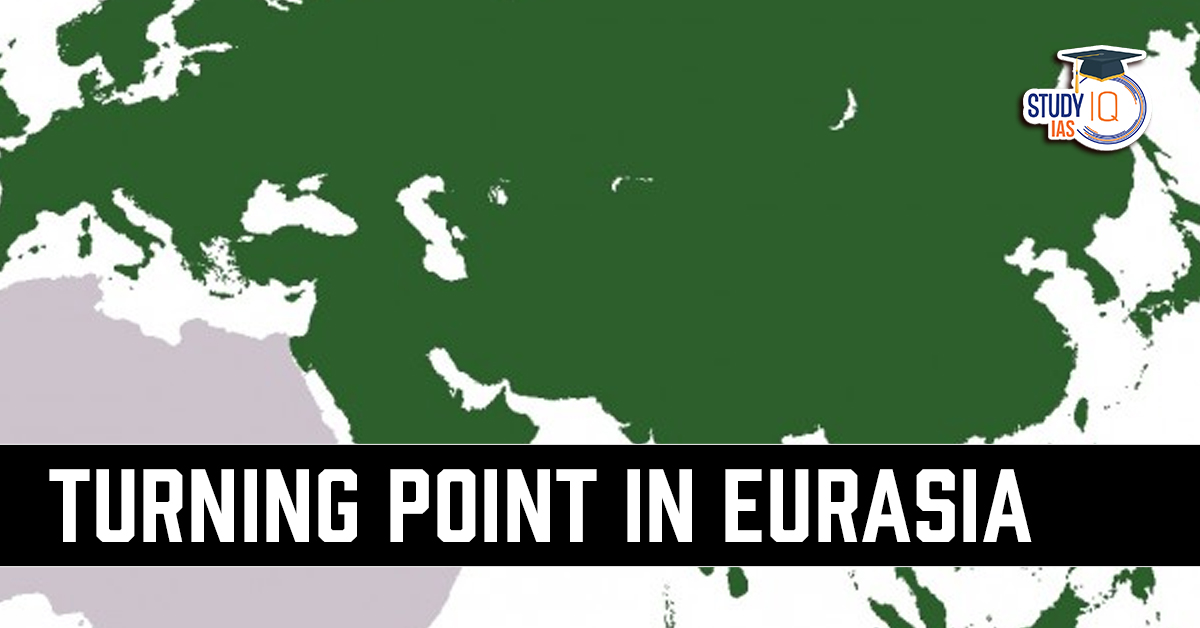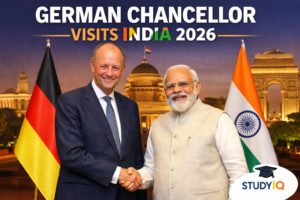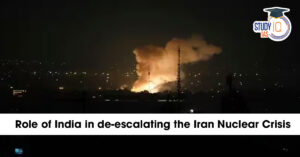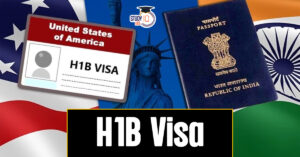Table of Contents
Context: The 2025 NATO summit in The Hague is portrayed as a critical moment, with NATO’s relevance and cohesion being questioned due to persistent transatlantic tensions, the Russian invasion of Ukraine, and Trump’s scepticism about the alliance.
| About NATO |
|
Why Eurasian Powers Must Find Political Answers to Security Problems
- Changing US Commitments: As the US questions its role in defending Europe and the Middle East, traditional reliance on American military support is no longer assured.
- Limits of Military Spending: Raising defence budgets (now 5% of their GDP) on defence alone cannot address complex security dilemmas rooted in regional rivalries, historical grievances, and shifting alliances (such as Russian aggression in Ukraine or the Armenia-Azerbaijan conflict.)
- Geopolitical Shifts: The Russian invasion of Ukraine and realignments in the Middle East highlight the need for homegrown political solutions, including dialogue and regional cooperation.
- Strategic Autonomy: Germany’s “Zeitenwende” policy is transforming it into a security provider for Europe, rather than relying solely on US protection.
- In Asia, Japan has begun revising its pacifist constitution to enable a more active defence role, and India has invested in its own defence industry and security partnerships beyond the US, such as with France and the Quad (Japan, Australia, US, India).
| Key Features of the Zeitenwende Policy |
|
- Regional Reconciliation: Efforts like the normalization of ties between Saudi Arabia and Iran—facilitated by China—demonstrate the power of political negotiation in reducing tensions, even where military confrontation has failed for decades.
- In Central Asia, countries like Uzbekistan and Kazakhstan are building regional security and economic partnerships to reduce dependence on outside powers.
- Birth of a New Order: The rise of China, renewed Russian assertiveness, a more independent Europe, and India’s growing global profile signal a shift to a multipolar world.
- This demands coalitions (like BRICS or the Shanghai Cooperation Organisation) and new diplomatic approaches, rather than relying solely on the old US-centric alliances or military pacts.
Implications for India
- India’s unique geography and strategic position, straddling Europe, the Middle East, and the Indo-Pacific, offer both challenges and opportunities.
- India is actively:
- Deepening strategic ties with Europe.
- Engaging all major actors in the Middle East.
- Stabilizing ties with China and bolstering relations with ASEAN, Australia, Japan, and South Korea.
- Maintaining robust engagement with the US, regardless of its inward turn.
- These moves are aimed at ensuring India’s ability to navigate a world of “diminished certainties” and maximize its strategic autonomy.



 German Chancellor Visit to India in 2026...
German Chancellor Visit to India in 2026...
 Iran Nuclear Crisis and India’s Role f...
Iran Nuclear Crisis and India’s Role f...
 H1B Visa Program, Beneficiaries, Eligibi...
H1B Visa Program, Beneficiaries, Eligibi...

























